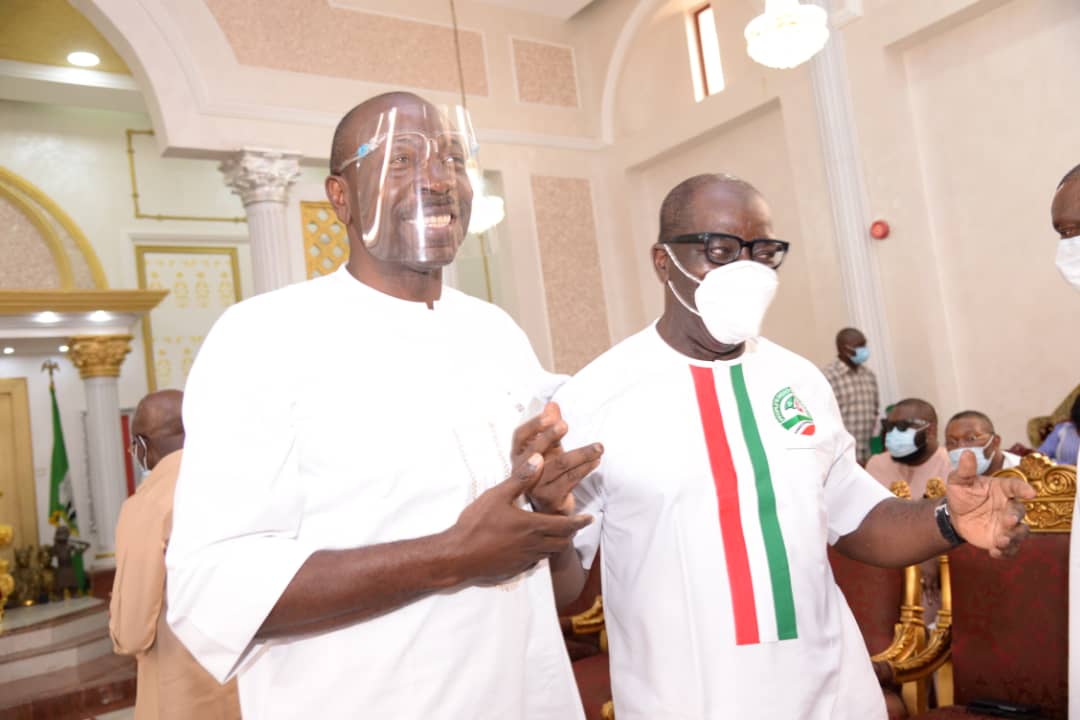BY THEOPHILUS ABBAH
They don’t belong to the bracket of quack doctors, who dispense drugs and inject victims with satanic and murderous dosage of chemicals. They are not medical college dropouts, who hypnotize unsuspecting public with precise medical language and overstretch their incomplete knowledge to administer pharmaceutical drugs and perform surgeries that maim and destabilize the lives of unlucky patients.
They are not witchdoctors who reduce every ailment to the activities of evil powers and invoke spiritual forces in the healing process, only to supervise permanent damage or eventual death of their victims in their healing homes. They are not nurses who, as a result of their close observation of the practices of qualified doctors, arrogate to themselves the status of medical doctors but find themselves stranded when treatments administered to patients nosedive and throw them off-balance. Rather, these killer-doctors are qualified doctors, qualified medical doctors and surgeons, specialists, team leaders, and even consultants who superintendent over avoidable deaths in government and private hospitals in the country.
As I cobbled this piece together, tears streaming down my chin and overflowing in my heart, the corpse of Roseline Edafe was freezing away in the morgue of the University of Abuja Teaching Hospital in Gwagalada. Edafe and Roseline wedded in November last year. As we saw Roseline’s tommy shoot out with a baby, we rejoiced in our circle that a new baby that would solidify the union of the young family was underway. Young and elegant, with a body built for sport, Roseline carried her pregnancy with grace, the kind that made every woman who has passed child-bearing stage to yearn for the return of her past. She was supposed to have been delivered of the baby in mid-August, but, as it is with first pregnancies, Roseline did not experience contraction almost two weeks after the Expected Delivery Date (EDD). Unable to handle the condition, the primary health care centre at Lugbe, where Roseline attended her ante-natal sessions, referred her to the university teaching hospital in Gwagwalada, where superior attention and Caesarian Session could be performed on her.
Advertisement
On Tuesday, September 1, 2020, the couple went to the teaching hospital. Luckily, Roseline began to experience contraction, but after over twenty-four hours of labour, contraction degenerated, giving way for exhaustion. By Thursday, she had not put to bed, but the energy in her had drained. Her husband and her mother, who accompanied Roseline to the specialist hospital, pleaded with the medical doctors attending to this young woman to perform CS on Roseline. Throughout Wednesday, they pleaded, but the doctors invoked their professionalism, saying Roseline would put to bed naturally. They were unmoved by all entreaties. On Thursday morning, at about 7.00am, I called to speak with Roseline. All she could say was, ‘Jesus, have mercy on me; Jesus, have mercy on me,’ her voice fainting and fading dangerously. It was at that point that she was wheeled into the theatre for surgery. When the doctors returned to Edafe few hours after, instead of a new baby, instead of good news, instead of a smile, they coldly announced the death of his Roseline. Out of exhaustion the baby had died in Roseline’s womb. Out of exhaustion, Roseline, too, gave up the ghost.
Not just shock, but anger; not just anger but frustration; not just frustration but disappointment; not just disappointment but disillusionment. They spread among us, freezing our hearts and confidence in the medical personnel at the University of Abuja Teaching (and Specialist) Hospital, Gwagwalada. In 2018, another friend suffered a tragedy that followed the dramatic pattern of Roseline’s fate. His pregnant wife registered at the General Hospital in Asokoro for ante-natal care. At the time of delivery, she was subjected to forty-eight hours of labour. My friend and her mother pleaded with doctors to perform the CS and bring out the baby of the dying woman’s womb. The doctors refused. Next. The young woman died of exhaustion. What did the doctors say? ‘It’s not our fault…’
In 2010, I lost a sister-in-law at the specialist hospital to chewing-gum munching doctors, obsessed with music as they wore headsets while taking down notes on her ailment and health condition. The young woman’s conditions worsened. Before we took her to the hospital for treatment, we have a good time, chatting ourselves up and discussing old pranks, but when the treatment commenced, her condition worsened, until our laughter turned to mourning. My father-in-law fell short of accusing me of conniving with doctors to kill his daughter when, in a solemn, regretful and sorrowful mood, he told me there were herbs and roots that would have cured her daughter of the ailment.
Advertisement
At data collection desk of the specialist hospital in Gwagwalada, Roseline’s death would be recorded as a tally in the obnoxious maternal mortality incidents in Nigeria. As at 2015, the World Health Organisation (WHO’s) statistics says in Nigeria 814 women died out of every 100,000 birth, signaling that Nigeria has one of worst MMR in Africa, not to talk of global context. The reasons adduced for high MMR in the country included inadequate human resource for health; delay in seeking care; inadequate equipment; lack of ambulance transportation; delay in referrals services, and use of Traditional Birth Attendants and mission homes. From my own perception, WHO needs to add two factors – lack of commonsense and misdiagnosis – on the part of some doctors.
It takes high aptitude to qualify as a medical doctor. From parallel distinction in Mathematics and Sciences, high score in JAMP Aptitude Test, and excellent scores in Basic Medical Sciences courses, to passing through fire in joggling between practical session and studies during their years in clinicals, becoming a doctor is a feat of no small measure. But it is my proposition that medical doctors should add commonsense to their knowledge, else we will continue to record unnecessary and avoidable fatality in our hospitals. For instance, Roseline died because doctors who attended to her case claimed that the result of a scan on her showed she could be delivered of her baby through normal birth. But that hypothesis fell flat in the face of exhaustion. Without energy how could Roseline put to birth normally? We learnt later that the dead baby weighed 4.5kg! How would a young woman naturally give birth to a baby that weighed so much?
Truth be told, of all civil servants, workers and professionals in Nigeria, medical doctors enjoy uncommon goodwill among the people, such that in their frequent labour disputes with government, we take side with medical personnel. Nigerians sympathize with them due shortage of doctors, leading to the few that stay back in Nigeria being overwhelmed with patients. Our medical doctors are over-worked, but the few bad eggs among them have continued to deface their good work. Wrong diagnoses, poor judgment, and obvious indiscipline is fast eroding the confidence reposed on medical doctors. At a hospital in Abuja in July, I had to intervene when some persons accused some doctors, to their face, of being ‘agents of death and blood-sucking cults.’ I was appalled at such open and libelous confrontation. But that is how low the image of medical personnel has sagged. Definitely, this is not good for the profession.
But only medical doctors can salvage the situation. Perhaps, it is necessary to publicly sanction doctors whose dereliction of duty cause preventable harm and death to patients. Nigerians should be encouraged to report misgivings about medical attention to the authorities; on their part, the management of hospitals should not shield their staff from punishment when found wanting. The Medical and Dental Council of Nigeria (MDCN) should revive its disciplinary committee to deal with this cancerous challenge to the medical profession. Nigerians should be enlightened on options for redress, if they feel doctors were unprofessional in attending to them. Every day we lament and call for the prosecution of killer-drivers, killer-policemen, killer-herdsmen, and killer drug peddlers. Let us launch a campaign about killer-doctors as well. We shouldn’t continue to endure avoidable deaths.
Advertisement
Dr Abbah wrote this piece from Abuja
Views expressed by contributors are strictly personal and not of TheCable.
Add a comment






